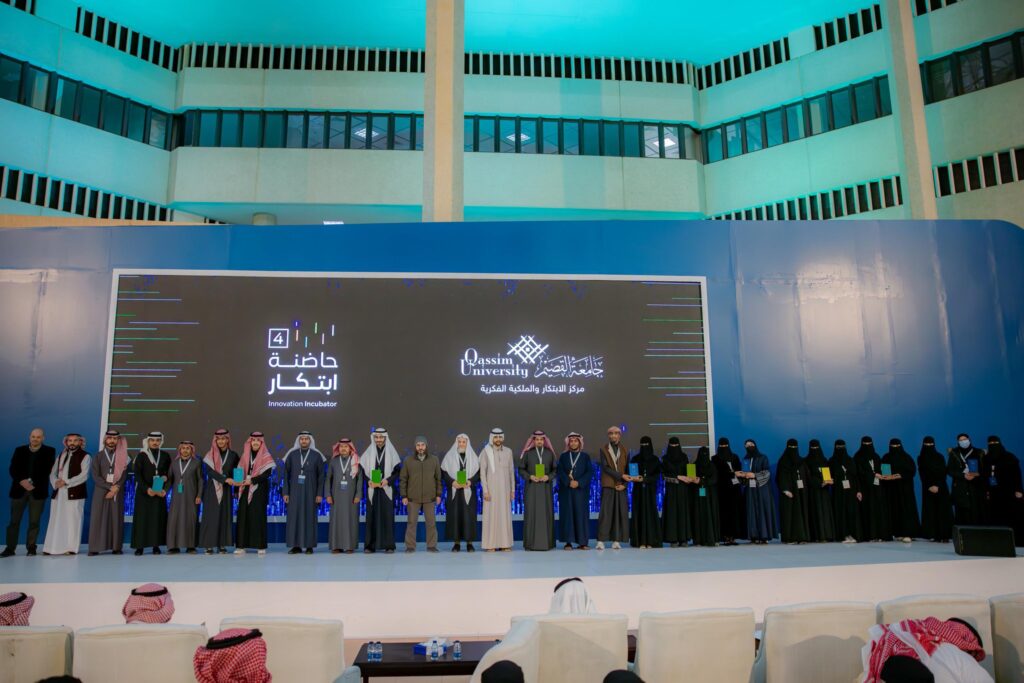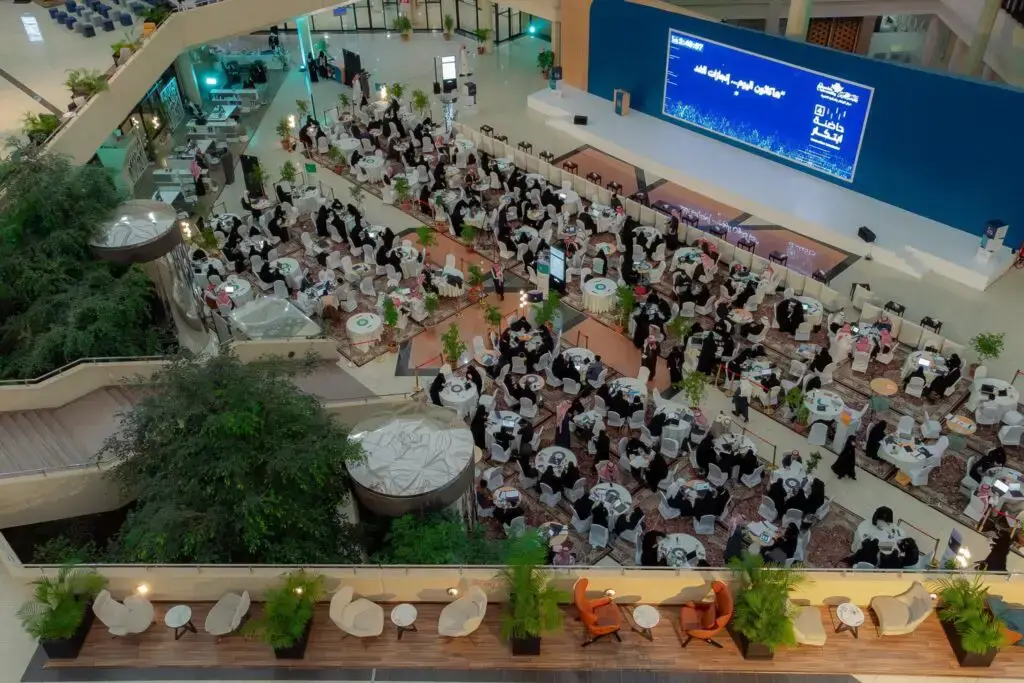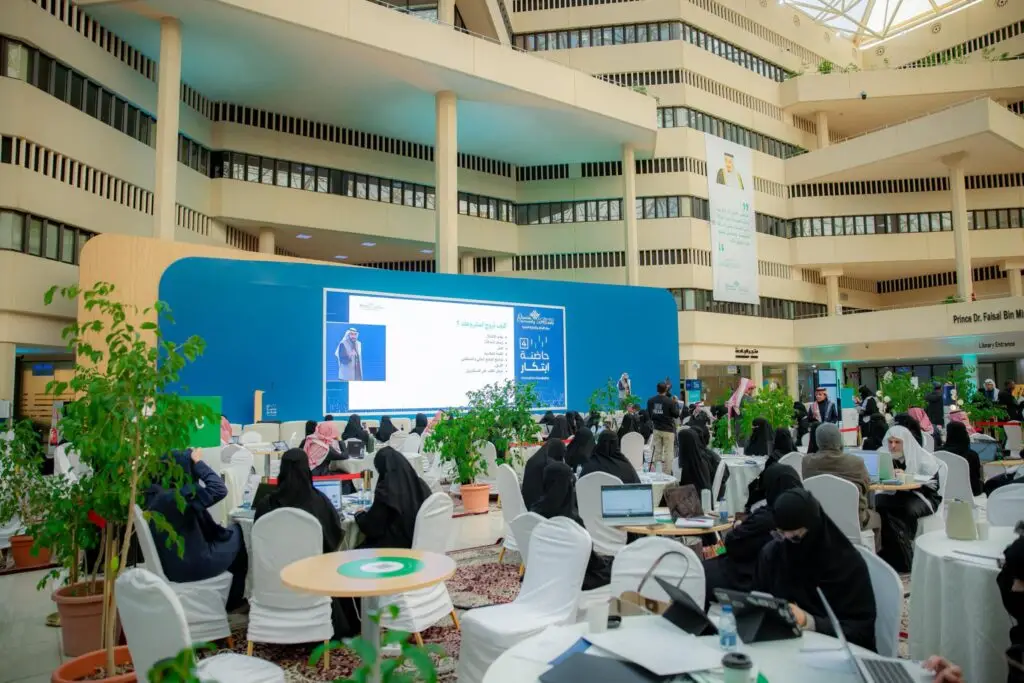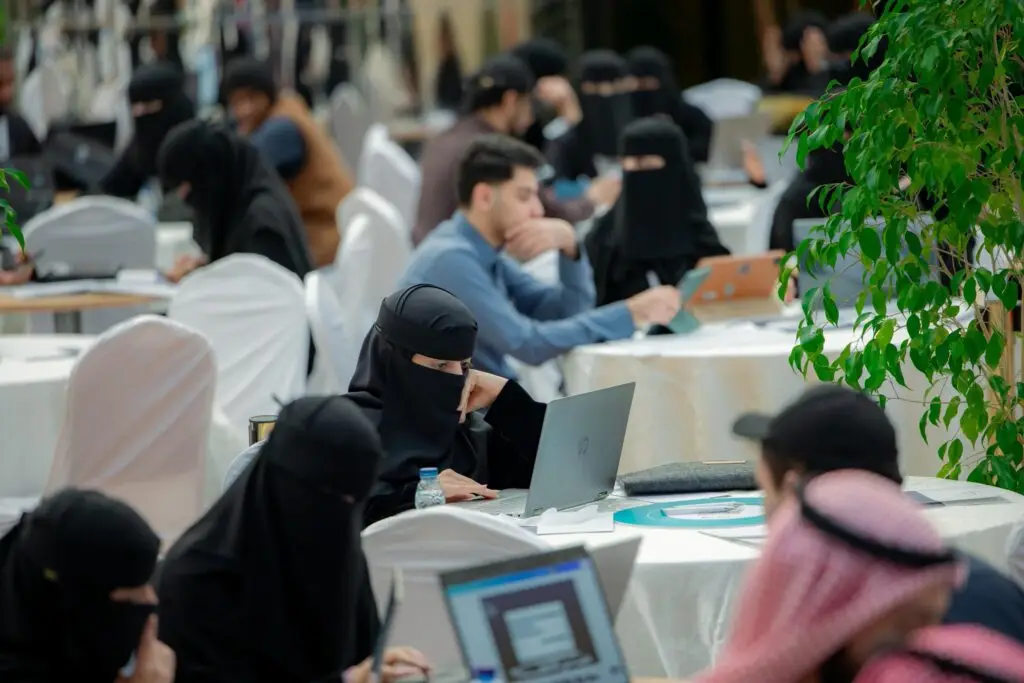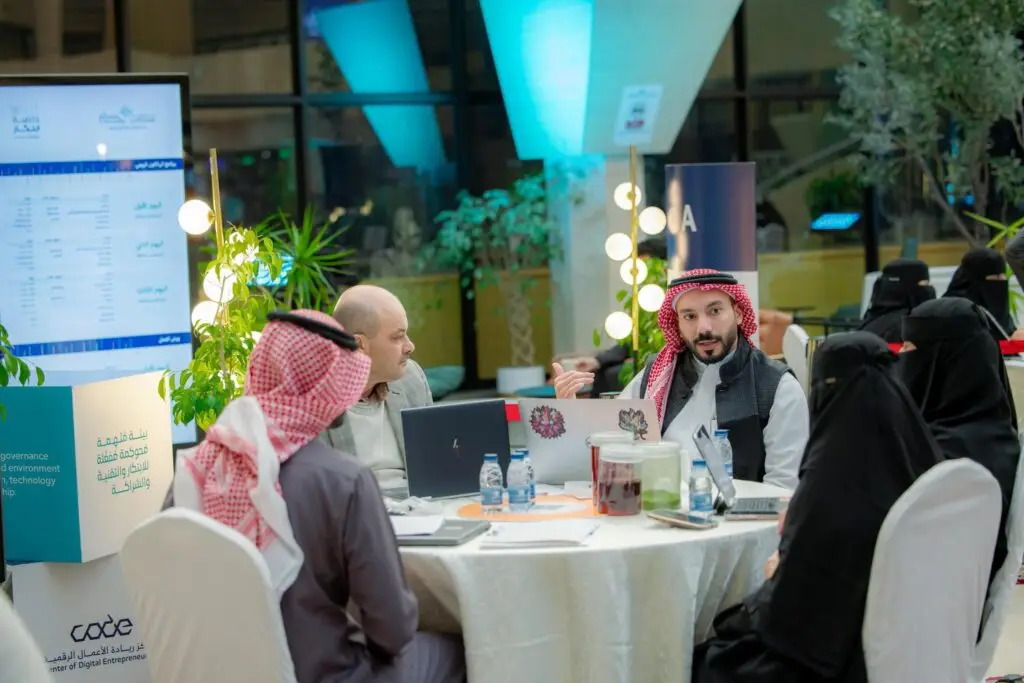Qassim University concluded the activities of "Innovation Incubator Hackathon 4" on Saturday, February 1, 2025, by crowning 12 distinguished projects and selecting 40 promising projects for the incubator training camp, out of more than 100 innovative projects and 350 competitors in the hackathon organized by the University's Center for Innovation and Intellectual Property, which lasted for three days in the main lobby of the university city.
The hackathon aimed to find innovative and creative solutions that contribute to addressing challenges in various fields, and to spread the spirit of competition and raise the level of projects for university affiliates by providing many programs, meetings, workshops and guidance sessions at different stages, which contribute to transforming these projects into promising products with economic value to support the innovation and entrepreneurship index and achieve the goals of the Kingdom's Vision 2030.
The Ibtikar 4 Hackathon is one of the main stages of the incubator, which witnessed the gathering of a number of innovators and entrepreneurs, and provided more than 500 mentoring sessions through 37 specialists in various fields. All projects were judged and evaluated in an automated and digitalized manner to ensure the quality of the results in 6 criteria based on the quality of the proposed solutions, their compatibility with national priorities, creativity and innovation, technical feasibility and implementation plan, sustainability and economic feasibility, as well as the presentation, which was judged by 28 arbitrators. All projects were judged by 28 judges, in preparation for selecting the best 40 projects within the next phase of the incubator, enabling participants to enter the training camp and contribute to building viable business models and launching towards the advanced stages of their entrepreneurial journey.
It is noteworthy that Ibtikar Incubator is one of the initiatives of Qassim University, which aims to spread and promote the culture of innovation, entrepreneurship and intellectual property, contribute to the excellence of graduation projects and direct them to promising economic products, promote investment and commercial opportunities in the region, link promising and distinguished projects with local investors, and incubate innovative ideas for graduation projects and transform them into university startups in several areas, namely: human health, sustainability of the environment and basic needs, leadership in energy and industry, and future economies: "Human Health, Environmental Sustainability and Basic Needs, Leadership in Energy and Industry, and Future Economies.

